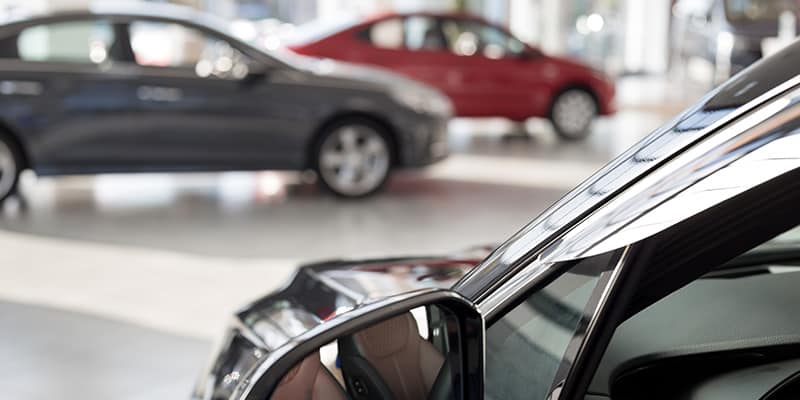
Best Time To Buy a Car in Canada: Best Month and Best Day
Buying a new car is one of the biggest purchases you’ll ever make. Vehicles are an expensive investment, which is why many Canadian car buyers are looking for ways to get the best deals possible when making such a major purchase.
Believe it or not, the time of year (and even the time of month) can make a really big difference in how much you pay for a new vehicle. By doing some online research and carefully timing your purchase, you can potentially save thousands of dollars!
In this blog, we’ll tell you about the best times to buy a car, including the best month, time of year, and various other times when making a car purchase will get you the best deal for your money. Let’s get started!
Key Takeaways
- Generally speaking, the best time to buy a car in Canada is late fall through early winter. More specifically, it’s best to purchase at the end of a time period—like at the end of the month, calendar year, car model year, etc. October, November, and December are prime car-buying months because that’s when dealers are looking to clear out older models and meet their end-of-year sales quotas.
- It’s also smart to shop on holiday weekends (ex. Boxing Day) to score some big discounts.
Car Model Release Cycles
Fall is one of the best times to purchase a new car because it’s when dealerships are trying to clear out inventory to make room for next year’s models. The new models usually start arriving on dealer lots in September and October. This means dealers will also be eager to sell off any of their remaining inventory from the previous year in November and December with greater incentives and discounts.
When manufacturers think it’s time to upgrade their latest model, they’ll put it through a redesign—meaning the current model is nearing the end of its design life cycle. Dealerships will want to clear out last year’s model and drop the price to do so. This means that even if you won’t have as many gadgets and gizmos as the redesigned model, you’ll still end up with an excellent vehicle at a great price.
Another great time to buy is when car models are being discontinued. If you’re planning on keeping your car for a while before selling, then any vehicle depreciation shouldn’t affect you in the short term. This is a great time for you to buy if you’re looking for a deal and don’t mind getting a discontinued model.
The Best Times To Buy A Car
Generally speaking, the best time to buy a car is usually at the end of a time period, like the end of the month, calendar year, car model year and car design cycle. Let’s get into specifics.
The Best Month To Buy A Car
The best time to buy is usually at the end of the month since dealerships are trying to clear out older models or the previous month’s showroom. The end of the month is a good ballpark, but if you’re looking for the months with the best deals, we recommend October, November or December. These are the most discounted months of the year since dealerships are trying to clear out the past year’s stock before bringing in new inventory. Chances are, they’re trying to make sales quotas and may be willing to offer you a better deal to get the car off the lot.
The Best Time Of Year To Buy A Car
As you could probably guess based on the previous category, the best time of year to buy a car is at the end of the calendar year. December often brings year-end sales events and clearouts, so if you’re looking for the best deal, you should plan to shop in December. Since dealerships are trying to clear out the previous year’s cars and make a lot of sales before year-end, you may be in luck if you shop during this time.
Shopping Holiday Discounts
Black Friday isn’t just for retail stores! Dealerships also use these holidays to create sales events with discounts, free add-ons, and finance incentives.
Late November through December is one of the best times of the year to purchase a car in Canada due to the major discounts and promotions being offered by dealerships to draw in buyers. One of the most notable days is December 26th (Boxing Day) because it’s not uncommon to see cars discounted by several thousands of dollars. Plus, December often has the highest number of car sales in Canada because dealerships are pushed to hit their annual sales targets before the new year.
Another benefit to making a car purchase during the December holidays is while dealerships are offering great discounts, the showroom traffic is often much slower during this time of year. This means you’ll have one-on-one attention from a salesperson and a better chance to negotiate a lower price.
Dealership Quotas
October, November, and December are also the most discounted months of the year because dealerships are trying to clear out the past year’s stock before bringing in new inventory. Chances are, they’re trying to make sales quotas and may be willing to offer you a better deal to get the car off the lot.
You could see a discount of 10% compared to the average 6% discount during other months of the year. Salespeople will be highly motivated to move their inventory and make a good deal for you in the final weeks of December. Knowing this gives you as a buyer a lot more negotiation leverage and dealers will be more likely to accept a lower offer rather than lose out on an end-of-year sale.

Other great times to buy a new car:
At The End Of The Month
The best time to buy is usually at the end of the month, as dealerships are trying to clear out older models or the previous month’s showroom. Salespeople are also trying to meet monthly sales quotas, so they will be more motivated to make a great deal if they are trying hard to reach their targets.
It could work in your favour to negotiate a lower price at the end of the month, but always make sure you’ve done your research ahead of time so that you can play your cards right. Come prepared with a fair purchase price in mind, and remember that it’s always okay to walk away if the dealer isn’t willing to lower the price far enough.
Buying Cars On Long Weekends
Long weekends are also a popular time for significant incentives and deals, as they have less foot traffic. Many people are focused on getting away for the weekend and less focused on purchasing their next vehicle. Having less competing buyers means you will have more negotiating leverage. With fewer shoppers, dealerships will be much more motivated to offer lower prices and offer discounts in order to move their inventory.
Doing Your Research Online
Before visiting a dealership, it’s always important to do your research online. You’ll want to show up with information on hand that will help you in negotiations and ensure you don’t overpay for your new vehicle. Here are some key things to look up beforehand:
- Make, model, and trim level you’re interested in
- Search for listings and find prices for similar vehicles in your area
- Read reviews and ratings of the vehicles you like best
- Find invoice pricing and MSRP details to see what the dealer paid initially
By equipping yourself with pricing information and consumer insights, you’ll have the confidence needed to negotiate a lower price with a salesperson. It’s also a good idea to mention that you’ve taken the time to do your research before coming, so they know you’re serious about discussing numbers.
Common Negotiation Strategies
Always go into a dealership prepared to negotiate the final price. Many dealers will try to focus on monthly payments or down payments, but you’ll get the best deal if you negotiate the total price of the vehicle first. Here are some tips for negotiating confidently with a salesperson:
- Research average prices for the car you want before you visit the dealership.
- Make your first offer low, but also keep it realistic based on your research.
- Let the dealer counteroffer so that you eventually meet in the middle.
- Avoid discussing monthly payment numbers until you’ve negotiated the final price.
- Don’t forget to mention any competitive offers you’ve received from other dealerships.
- Point out any damage or wear-and-tear on the car to lower the price.
- Never take the first offer! There is pretty much always room for the dealer to bring down the price.
Lastly, always be prepared to walk out if the dealer isn’t willing to get close to your target price. This shows you’re a serious buyer—and could also change the mind of the dealer.
Test Driving The Car
Test driving the exact vehicle you intend to buy is a critical step in the car purchase process—and a fun one! You’ll get a real feel for the car, including its performance, comfort, and features. Here are some test-driving tips:
- Don’t settle for test driving a similar make and model. You’ll want to take the specific car you’re interested in for an extended test drive.
- If you are interested in multiple vehicles, test drive them back-to-back. This allows you to make an informed comparison.
- Take your time! Test driving is your chance to determine if a car is truly what you want before making a major purchase.
- Negotiate the terms of a test drive in advance and have a set route that mixes various road conditions.
- Drive the car on the highway to assess acceleration and higher-speed handling.
- Don’t be afraid to ask questions during the test drive to properly evaluate the vehicle.
Other Considerations To Make When Buying A Used Car
Buying a used car requires a little more research and investigation than buying new—but you can score an affordable, quality vehicle by taking these things into consideration:
- Because the used car market has less predictable pricing and availability, shop around more to find the best deals.
- Remember that there is more room for negotiation with used cars because dealers will have more flexibility when pricing their used inventory.
- Always inspect the used vehicle thoroughly before purchasing, look for cosmetic issues, and take it for an extensive test drive.
- Run a vehicle history report through a service like CARFAX to uncover any previous accidents, damage, or other red flags.
- Consider buying a certified pre-owned car (CPO) because they are inspected and come with an extended warranty.
Getting Financing For A New Car
At Birchwood Credit, you don’t need to wait for the right time because we always have the best deals! We cover all types of credits and situations. We specialize in helping people with less than perfect credit purchase or finance a vehicle. We understand the challenges that come with being in a difficult financial situation and are here to help you through the process.
Get in touch with Birchwood Credit today to get the car-buying process started! It takes as little as three minutes to complete our online application form.


